|
|
|
|
Nau mai haere mai — welcome to this week’s newsletter.
While we are still waiting for final election results and the outcome of discussions between Labour and the Greens, there are certain things about the new parliament we can already tell — including that it is likely our most diverse yet.
Among the ranks of new MPs is Ibrahim Omer, the first African and second former refugee to be elected in New Zealand. His story is inspirational, but also serves to highlight the ongoing challenges refugees from Africa (and elsewhere) still face after they arrive here.
Once a new government is formed, it will face challenges in the health system, beyond the ongoing quest to keep COVID-19 out of the country. Unlike citizens of some other high-income countries, all New Zealanders have, in principle at least, access to free secondary healthcare. But inequality is a major issue, and the government will have to decide whether to implement any recommendations from a major health system review commissioned by the previous Labour-NZ First coalition.
How we should pay for the pandemic response and recovery was one of the more hotly contested policy areas during the election campaign, and it was even suggested New Zealand could effectively write off any debt accrued along the way by printing money. Fans of “modern monetary theory” would agree, but there are risks inherent in such an approach.
There is much more to read here and on our homepage. As always, many thanks for your support for our work. If you enjoy this newsletter, feel free to share it with friends and colleagues — and they can subscribe here. Ka kite anō a tērā wiki.
|
Veronika Meduna
New Zealand Editor: Science, Health + Environment
|

|
|
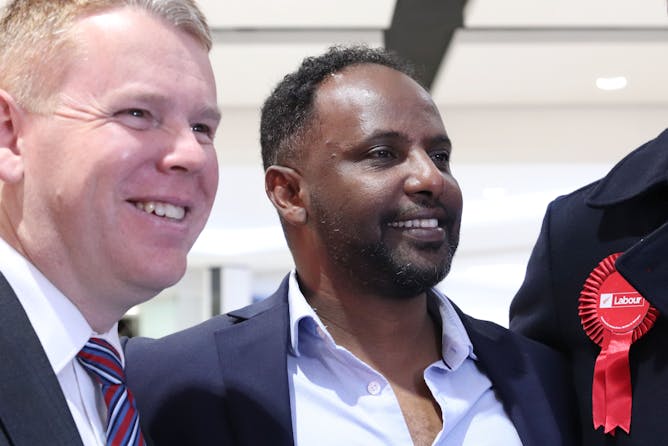
Ibrahim Omer campaigning with Labour MP Chris Hipkins during NZ’s 2020 general election.
GettyImages
Samuel Judah Seomeng, Te Herenga Waka — Victoria University of Wellington; Caroline Bennett, Te Herenga Waka — Victoria University of Wellington
As the country's first ever African MP, and only the second refugee to win a seat, Ibrahim Omer is ideally placed to tackle the big problems facing immigrant communities.
|
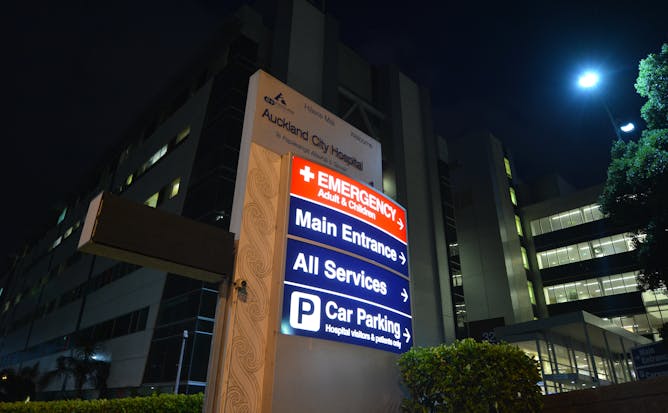
Shutterstock/ChameleonsEye
Sarah Derrett, University of Otago; Patricia Priest, University of Otago
New Zealanders have, in principle, access to free healthcare. But inequality is a major issue, affecting Māori and Pasifika communities and New Zealanders living with disabilities or in poverty.
|

www.shutterstock.com
Ananish Chaudhuri
Massive borrowing to fund NZ's economic recovery due to COVID-19 cannot be written off without the risk of worsening the crisis it was designed to meet.
|

David Rowland/AAP Image
Suze Wilson, Massey University
Leaders need to focus on minimizing the COVID-19 harm to both lives and livelihoods if they're to win support from the electorate.
|

Shutterstock/CUTWORLD
Brett Carter, RMIT University; Rezy Pradipta, Boston College
It's not only nuclear bomb tests that disrupt the atmosphere, there are a number of natural events that can do the same. But how long does any damage last?
|
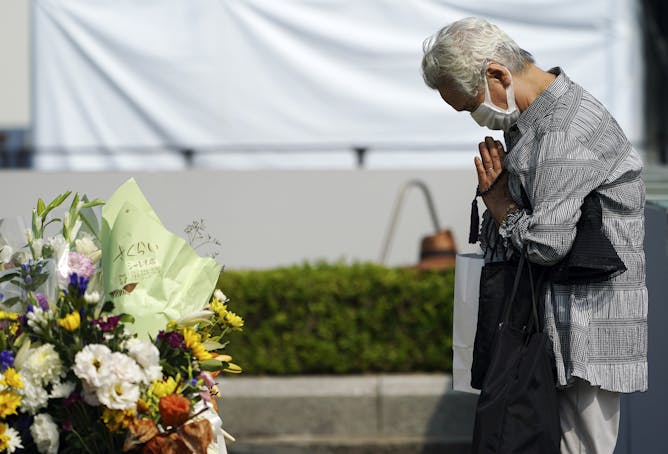
Eugene Hoshiko/AP
Gwyn McClelland, University of New England
The hibakusha (survivors) of the 1945 bombings have been among the most tireless campaigners for the treaty. The Japanese government, however, has not supported it.
|
From our international editions
|
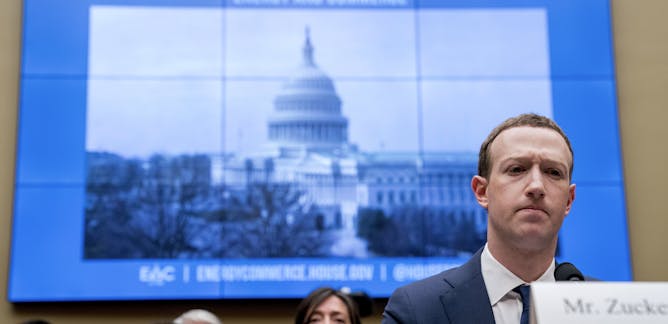
Michael Brand, Monash University
Facebook benefits financially from misinformation spreading on its platform. As long as it puts profits ahead of public good, the tilting of the political landscape will persist.
| |
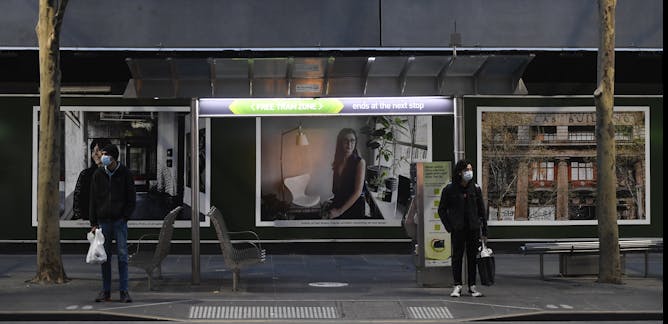
Kate Brady, University of Melbourne
Collective trauma research tells us if you haven't been through the event, you'll never quite understand. That doesn't mean people outside Melbourne haven't had their own experience, or can't help.
|
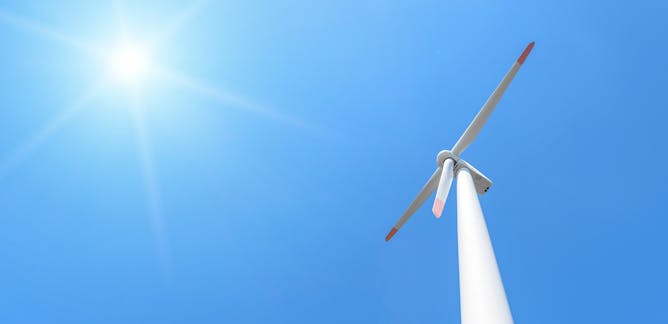
John Mathews, Macquarie University; Elizabeth Thurbon, UNSW; Hao Tan, University of Newcastle; Sung-Young Kim, Macquarie University
Many Asian nations are shunning fossil fuels, presenting a huge opportunity for Australia's renewables sector. And one massive project has stepped up to the plate.
| |
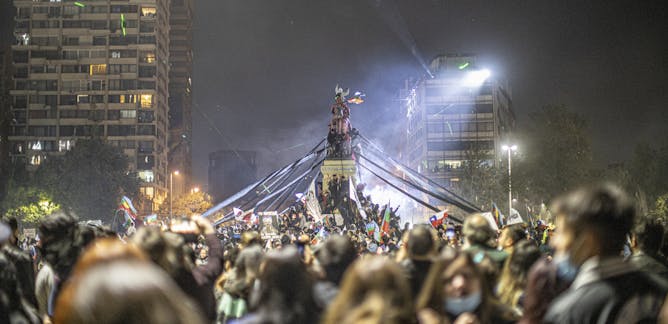
Jennifer M. Piscopo, Occidental College; Peter Siavelis, Wake Forest University
After a year of unrest Chileans voted decisively on Oct. 25 to replace their constitution, a relic of the military dictator Pinochet. Civilians, half of them women, will write the new constitution.
|
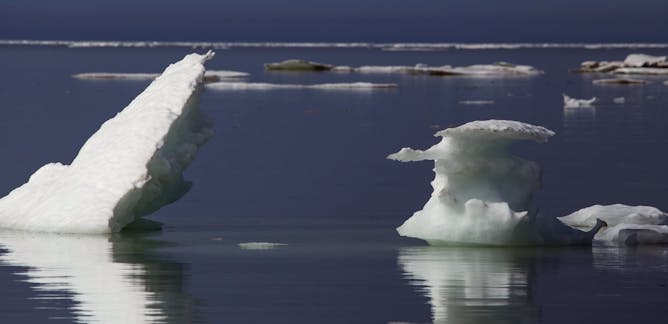
Jonathan Bamber, University of Bristol
The Laptev Sea is one of the Arctic's biggest nurseries of new sea ice in winter, but Siberia's record summer heat may have halted production.
| |
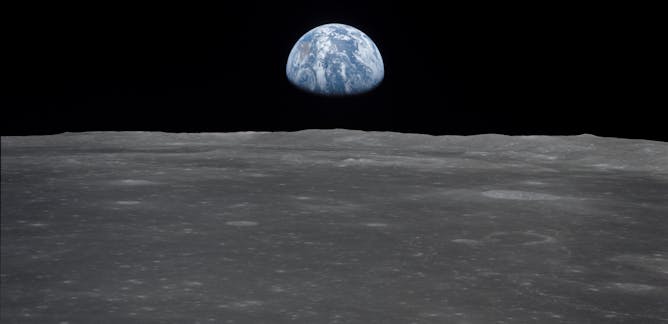
James Mortimer, The Open University; Mahesh Anand, The Open University
Two new studies significantly advance our understanding of water on the Moon and where to find it.
|
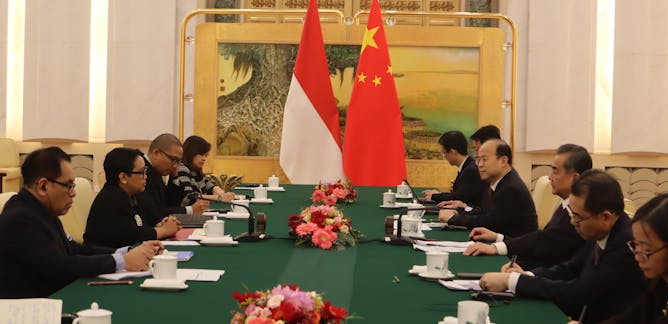
Muhammad Zulfikar Rakhmat, Universitas Islam Indonesia (UII)
A stronger partnership between China and Indonesia may impact Indonesia's relationship with the US.
| |
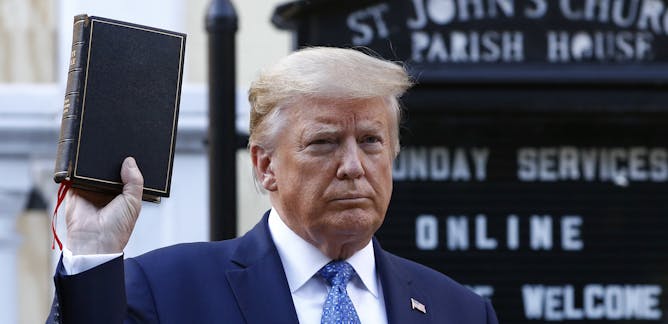
Tony Keddie, University of British Columbia
The Republican political strategy that uses Christian language to cast Trump as a divinely appointed protector of an authoritarian Christian nation warrants more scrutiny than it's received.
|
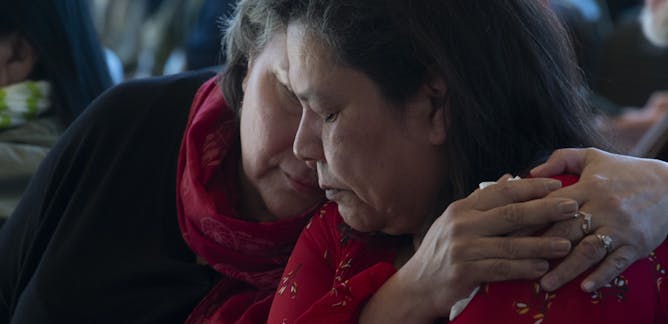
Jackson Pind, Queen's University, Ontario; Raymond Mason; Theodore Christou, Queen's University, Ontario
Canada is accepting claims emerging from a settlement with survivors of Indian day schools, but there has yet to be a public inquiry. There is an urgent need to hold Canada accountable.
| |

Astrid R.N. Haas, International Growth Centre; Victoria Delbridge, International Growth Centre
Restricting trade to control the pandemic damages livelihoods, especially those of the urban poor. The control of future pandemics must strike a balance between health and economic activity.
|
|
|
| |
| |
| |
| |
| |
| |
|
|
|
|
|
|
|